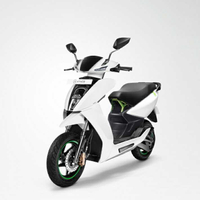Exclusive: How the Ather 450X was born and the Series 1 was conceived
Ather Energy gives us an inside look
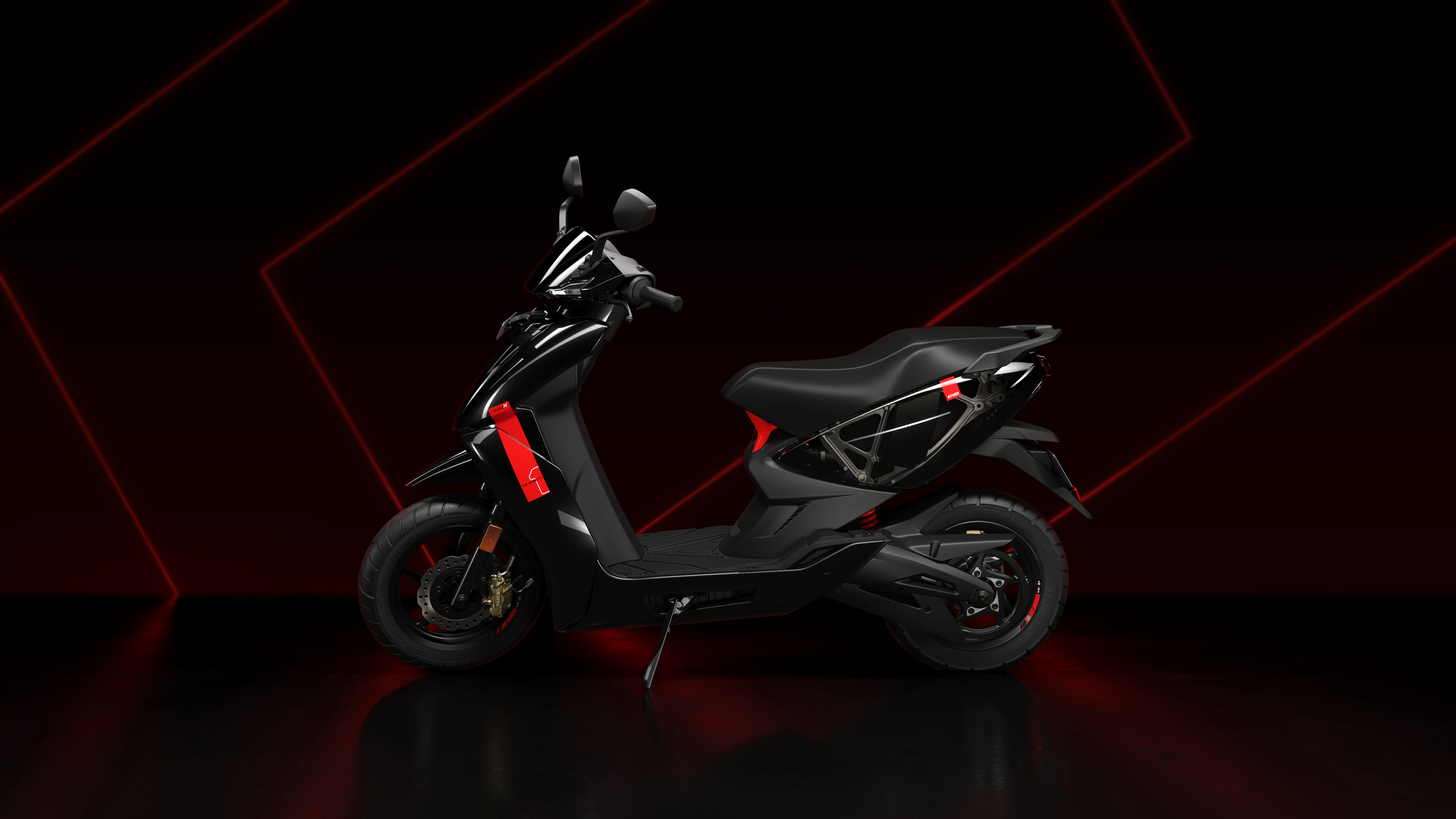
“We had to do it. Ather couldn’t die. We had to show it was possible!”, explained an impassioned Tarun Mehta when a fellow journalist questioned the pricing of the new scooters. It had just committed the implicit sin of raising the prices of its existing offerings when a new one was around the corner—the opposite of which is what tech and auto consumers are accustomed to.

This feature story includes inputs from Tarun Mehta, the CEO and co-founder of Ather Energy.
Ather Energy as a company is known to be bold and rebellious, almost to the point where it can seem arrogant. But as Steve Jobs rightly said, “Customers don’t know what they want”, sometimes, the standards need to be challenged. Electric vehicles, generally regarded as the future of mobility, are often known to go above and beyond replacing the fuel source — they hope to usher in a change in usage habits of the users as they look to offer an alternate user experience. With its first vehicle already on the roads for a few years now, it also has valuable data around how people use scooters for their commute which is factored into every important decision.
The Ather 450X, which is finally ready for deliveries, will take the crown for the quickest scooter in India. While it has a long way to match traditional scooters in terms of range, the company is hopeful that the acceleration and suite of smart features will help it differentiate from the competition, electric or otherwise.
Of course, being one of the first to the market comes with its own sets of risks, both technological and psychological. Ather Energy is well aware of its situation and position in the electric scooter space and how its decisions can have ripple effects on the other players. When the Ather 450 was launched in 2018, it had a price tag of Rs 1.25L. This price wasn’t decided based on profitability, but on what they thought should be the ideal price for an electric vehicle with these features.
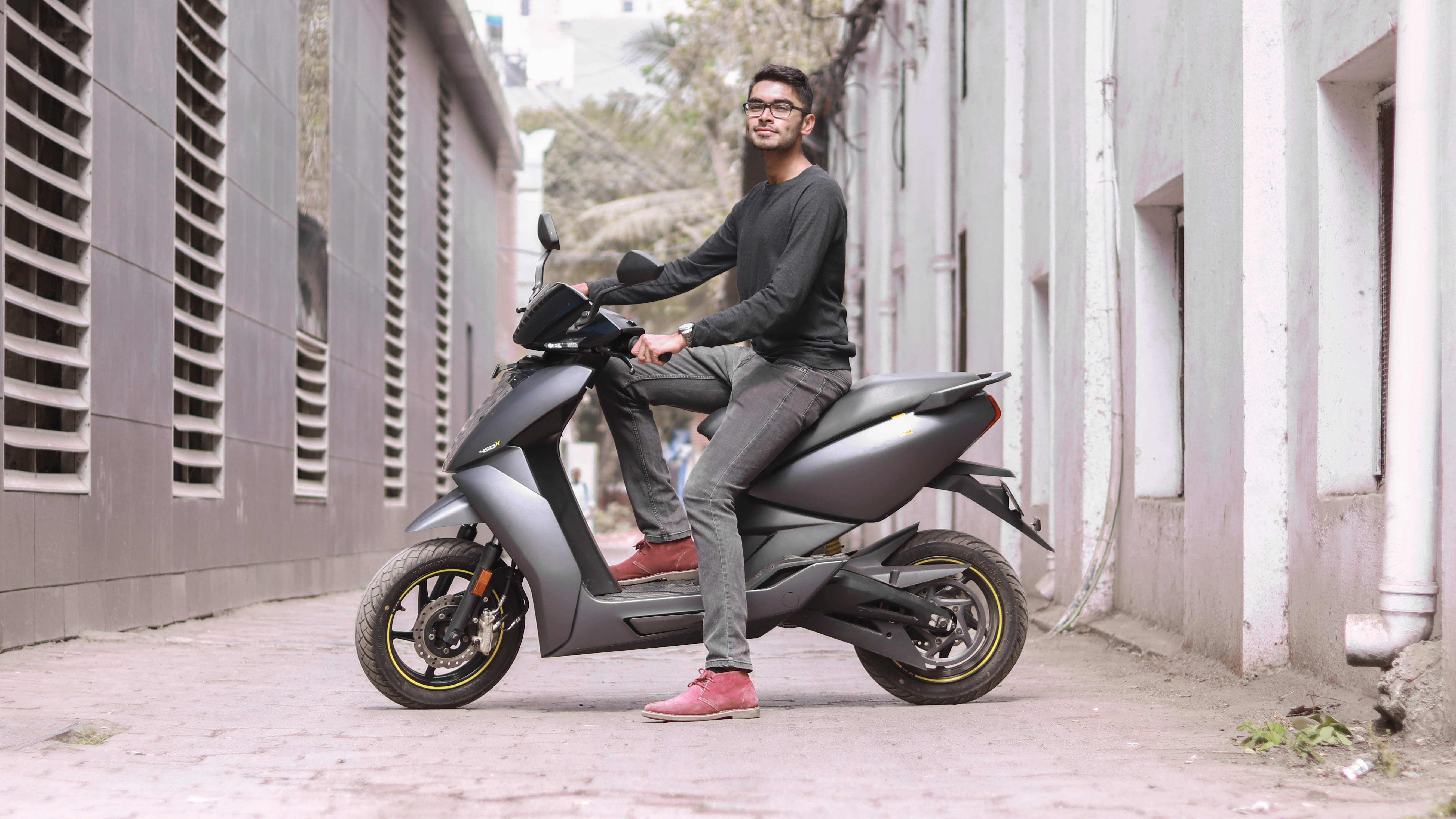
If we are not willing to prove that people will pay a fair price for an experience like the 450 then it’s hard for the market to really believe that electric is here and inevitable.
In reality though, this price was not sustainable. Each vehicle would cost them over Rs 3L to produce when the scale wasn’t achieved. Moreover, it was important was the nascent market to have the right expectations as the category matures over time. The business of electric vehicles is extremely difficult, and having unrealistic price expectations would just make it more difficult for the segment to grow. Even if young and unproven, the Ather 450 set benchmarks for electric two-wheelers in India in terms of performance and infrastructure. If people weren’t fine with its pricing, they wouldn’t be for anything else.
When the Ather 450X deliveries begin, it is poised to claim multiple titles: one of the quickest scooters in its category, one of the smartest vehicles globally, the first scooter with 4G connectivity and Android, the first with a cast aluminium chassis and a few more. With such accolades, some might wonder how an Indian startup has been able to do so in a sustainable fashion.
How the Ather 450X was developed
- Top speed: 80 kmph
- Acceleration: 0-40 kmph in 3.3s
- Range: 85 km
- Charging: 15 km in 10 minutes

To understand how the Ather 450X was born, we need to take a history lesson on how the company has functioned in the past. It started with the Ather S340 in 2016, which was a proper commuter vehicle for its time. But even once it was unveiled and available for purchase, the company kept making minor upgrades and fixes to the product frequently—most of which weren’t even disclosed. Along with these, when the battery technology improved, the Ather S450 was born in 2018. But, the improvements in aspects such as the dashboard, charger, microcontroller and platform, which were unique for 2018 were already outdated by 2019.
Get daily insight, inspiration and deals in your inbox
Sign up for breaking news, reviews, opinion, top tech deals, and more.
On the other hand, the global battery supply chain was evolving as the industry began transitioning from legacy 18650 batteries to the new 20650 standards. While these were early days, Ather Energy saw the potential here. In the same volume, these cells had significantly higher energy densities. It enabled a 30-40% increase in torque, 50% faster charging, 15% higher capacity and improved range. When added with the aforementioned minor upgrades, the jumps added up to a considerable level.
To be honest, the X was a hurried launch which wasn’t originally planned.
The auto industry around the world is known to chase annual refreshes to be relevant. But here, Ather was looking at something momentous: an entirely new class of electric scooters that hadn’t been seen before; a higher performance variant based on the same platform.
The community is also a big part of how Ather Energy functions. Users and fans regularly interact with the company in different formats to talk about the products and the industry. These direct inputs, paired with a robust array of sensors that track all the crucial components of the on-road vehicles boil down to meaningful data points that quicken product iteration. “Legacy automakers come with a very mechanical view at cars. The market will soon have many offerings of electric vehicles, but our native software integration will differentiate Ather from any other competitor,” explains Swapnil Jain, the co-founder.
As of September 2020, Ather owners have ridden over 15M km on-road.
Not just an incremental upgrade
Tarun fondly recalls how the Warp Mode—the Ather 450X’s headlining feature—was conceived. At a community meet in June 2019, they were discussing Tesla’s ‘Ludicrous mode’, which focusses all resources towards the vehicle’s acceleration. Casually, the Ather team asked if they should work on something similar. Within seconds, the entire attendance emerged in cheers and confirmed their desire. This is when they realised that an extreme performance mode is something that people would really enjoy.
Some of the other developments that have their roots in the community feedback include the dark theme on the dashboard for easier nighttime riding, an Eco mode for higher range at a lower speed, Bluetooth connectivity, Google Maps integration, etc.

Tarun also shared some other features with us that were in contention but did not make it to the final vehicle. The most notable omission was the centre stand which has been often demanded by users. He explained that for a heavy and performance-oriented vehicle like the 450X, it didn’t seem to be a major priority. Moreover, with the batteries stored in the base of the vehicle, they would have to redesign the entire body to include a centre stand. Similarly, even the side steps for the pillion rider had to be axed. They also tried incorporating a keyless entry fob but ran out of time to get the reliability to a nominal level.
Needless to say, the Ather 450X was a crucial vehicle for the company’s future. People from all around the country had been wishing for its availability beyond Bangalore and Chennai, but that was a mammoth task as any expansion would have to be preceded by building a charging network and an experience centre. But when the company announced that it would finally be entering 10 more cities this year, the response was ecstatic. The scooter would be joined by an exclusive experience centre and a network of at least 10 fast chargers in each city.
Meet the Ather 450X Series 1
To further gauge interest, blind pre-orders were opened for the Ather 450X, where interested users could pre-book the vehicle for some extra unknown benefits. This was in early January when no details of the vehicle were available: category, price, range, or if it was even a scooter or something else. Much to their surprise, in a matter of days, a few thousand pre-orders came in.
This was how the Ather 450X Series 1 was born. Formerly called the Collector’s Edition, it was a way for them to acknowledge and distinguish the earliest adopters when the vehicle would begin shipping in November.
Interestingly, until very recently, it was undecided as to how this vehicle would be different from the standard Ather 450X. One of the only inspirations that were mentioned was “inside out”, meant to showcase the inner engineering and design of the vehicle. All they knew was that it had to be special and it should celebrate performance. Since the chassis is a big part of the performance and design, it was going to be an important aspect of the Series 1’s final design.
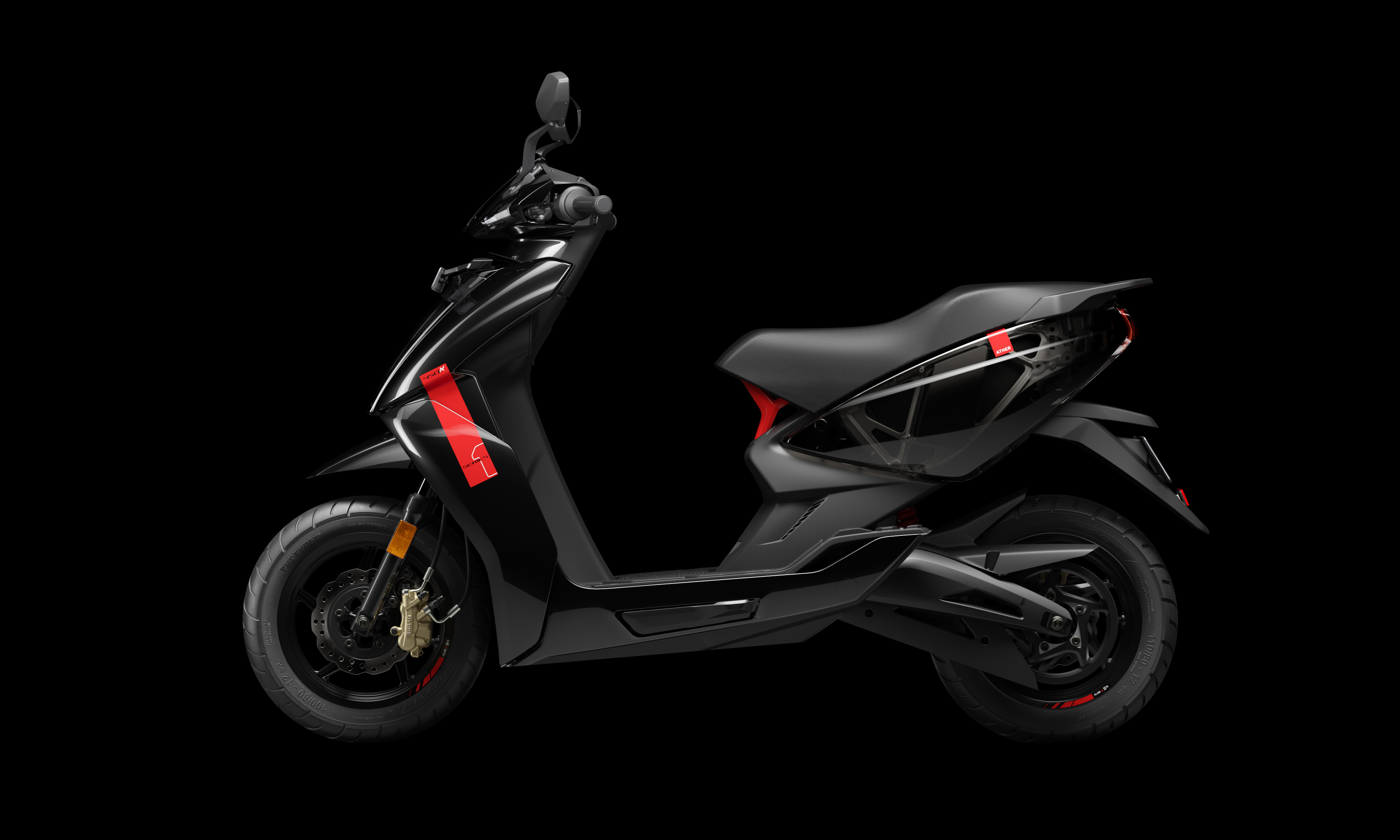
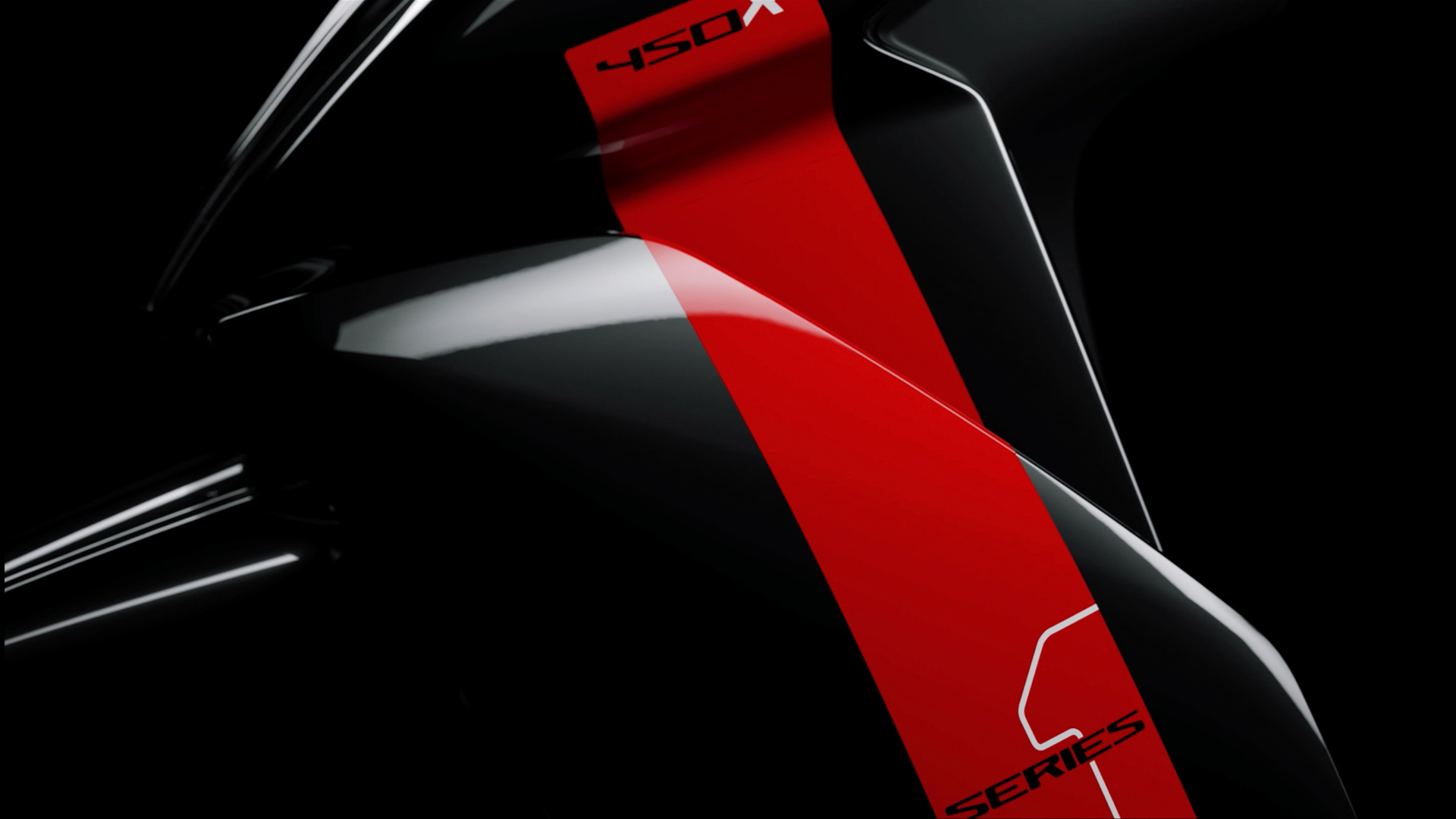
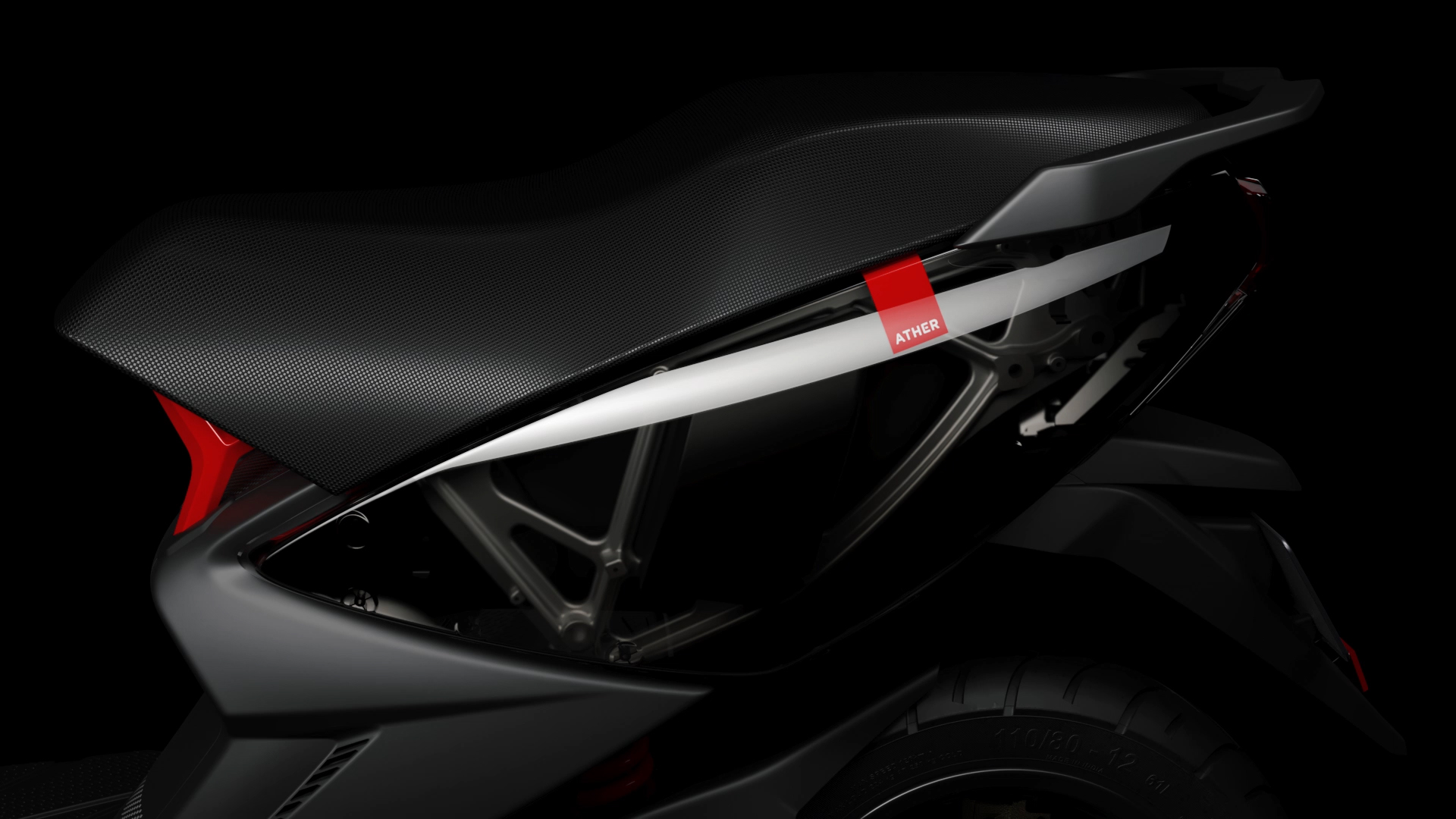
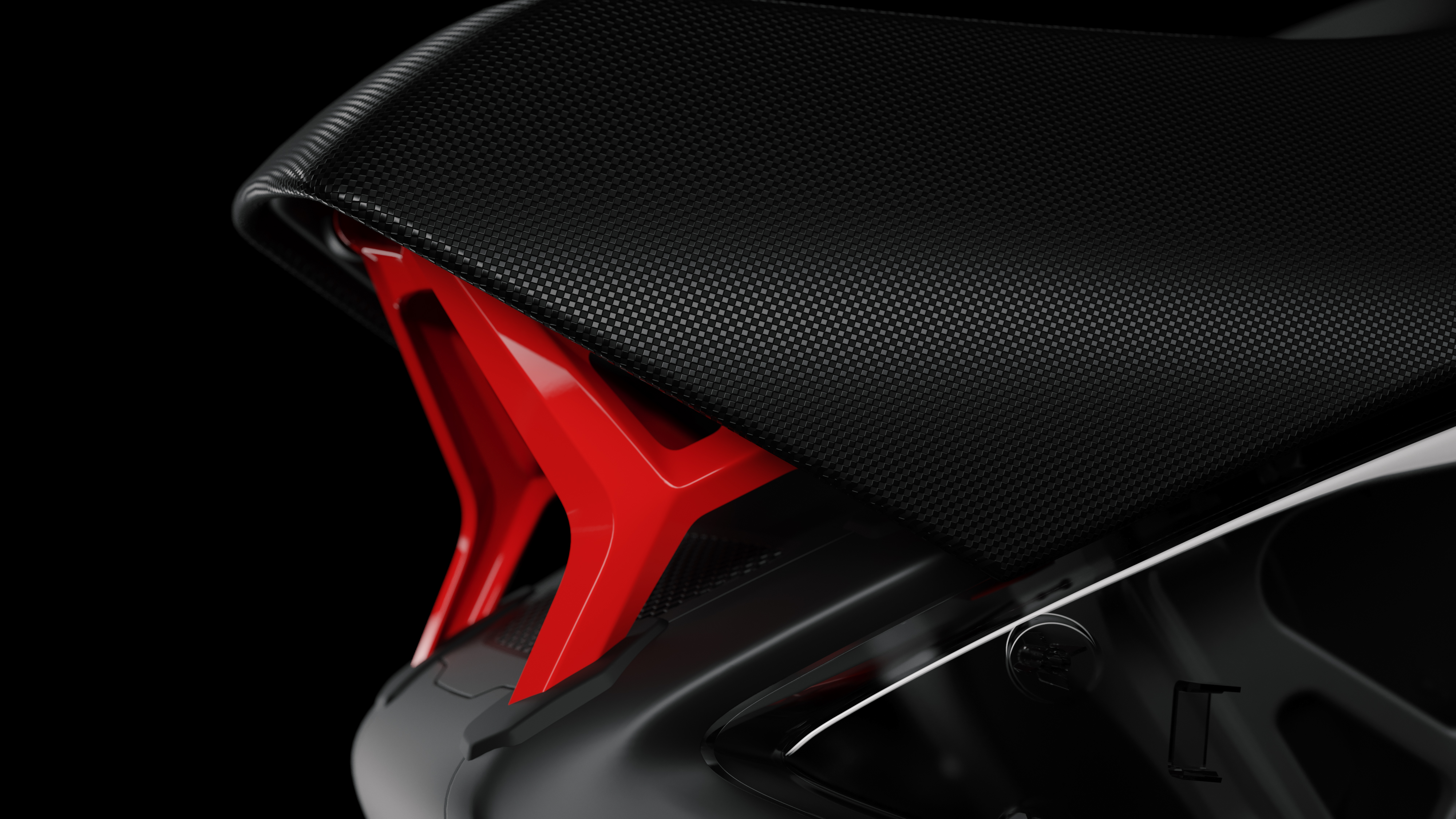
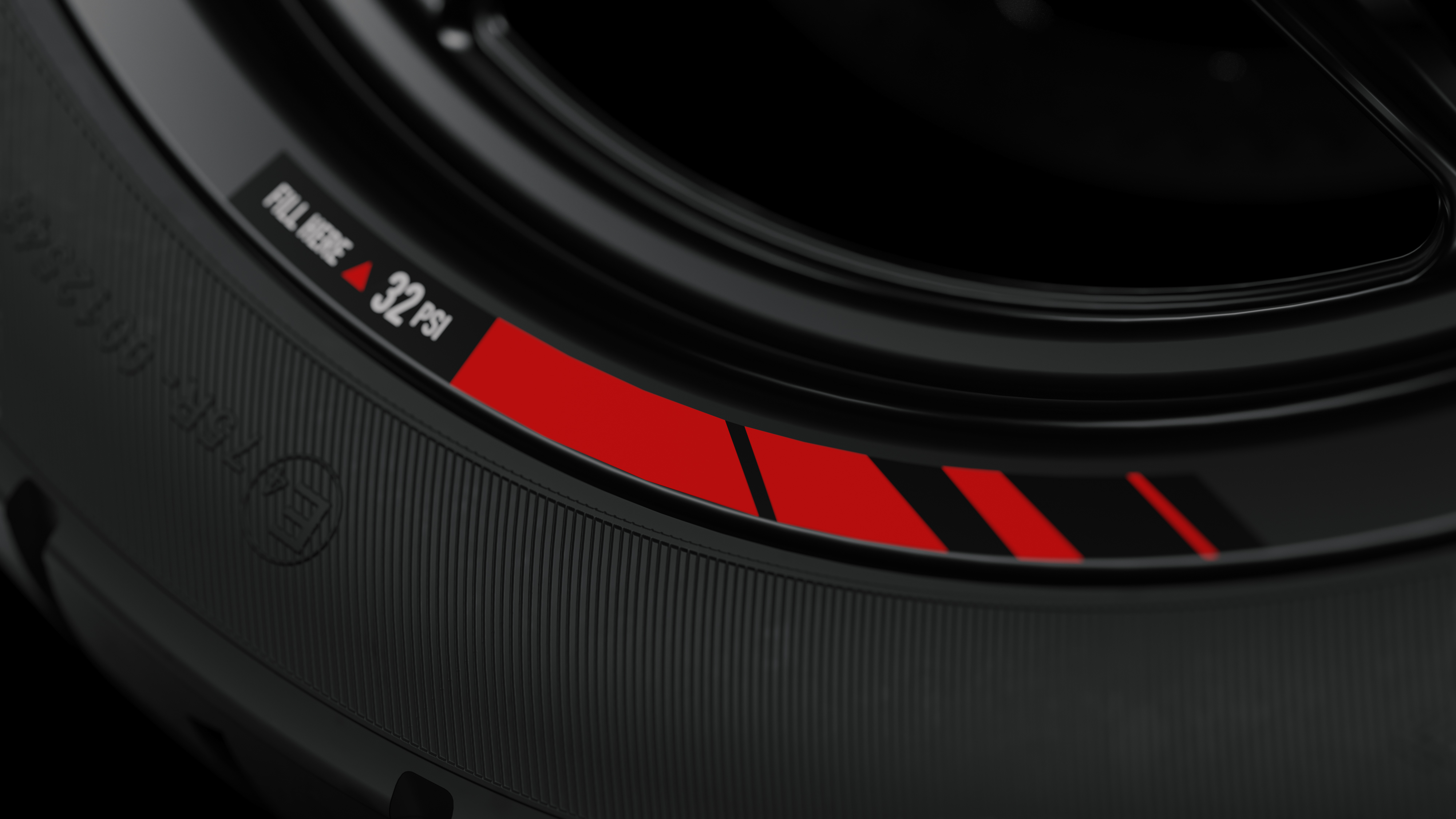
In the months post the unveiling, they toyed with various ideas. Tarun’s personal interest was in a fully naked body with almost no panels to let the frame speak for itself. Another idea, which was internally called “Project Ghost” was an entirely transparent scooter where literally every panel would be see-through, exposing not only the frame but also other components such as the wiring and connections. It, too, was scrubbed as it looked a little too “daunting” and “scary”. Another idea was on the opposite end of the spectrum with an entirely black Ather 450X with no accents or secondary colours. We weren’t allowed to share images of these prototypes for legal reasons, but whacky doesn’t even begin to describe these experiments.
Sometime in June, the design team decided to branch out of the ‘inside out’ idea but kept it as the key inspiration. “We wanted to showcase the tech and the engineering that made the 450X special,” added Swagat Rath, the Design Manager at Ather Energy.
After a fair bit of virtual back and forth, the industrial design team came up with what is now the Ather 450X Series 1. It moves to an entirely black body with a metallic finish but with a unique sheen to it, achieved from the tiny flecks of gold, silver and blue colours in the paint. Inspired from Motorsports, it has a bold red stripe on the front which reads ‘Series 1’. Even the iconic exposed frame at the rear and the mono-shock suspension are in the same Day Glow Red shade. The best bit is the see-through side panels under the seat. These panels are translucent to show the entire frame underneath which wraps the boot.
The journey so far
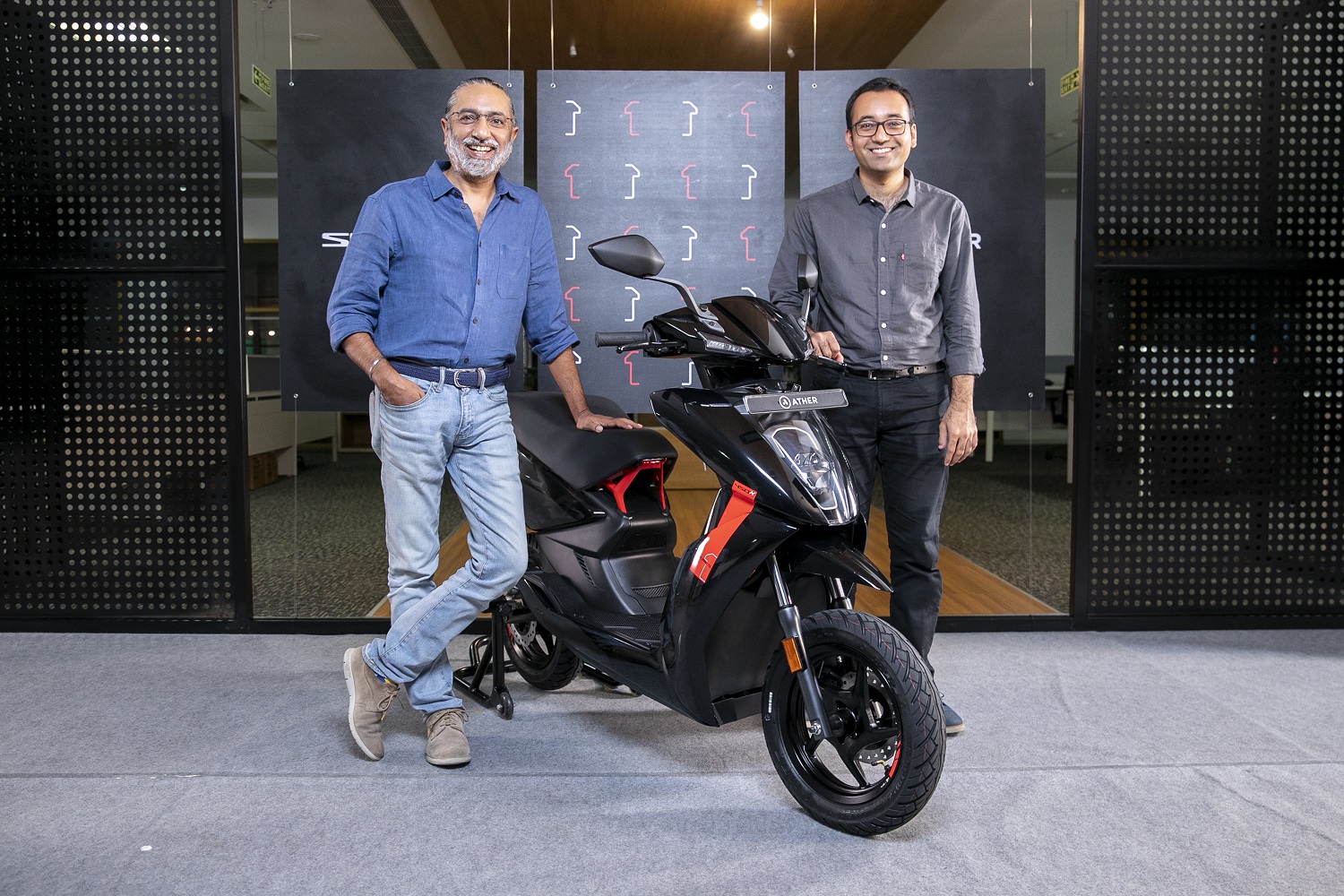
When your vehicle gets delivered, it will have the special paint job but not the transparent panels. Those will be added in May 2021 as a free upgrade.
Ather tells us that this is the first time transparency will make it to an on-road vehicle globally. Needless to say, it came with its own set of challenges. Instead of ABS, the panels had to be moulded out of polycarbonate to achieve the desired effect. This also meant that every subsequent layer also had to be flawless or else any blemishes would be amplified. On most vehicles, imperfections on the inside are a non-issue; but not here.
There will be only “a few thousand” Ather 450X Series 1s ever produced. The company will not make it available for purchase or as an upgrade later on, to acknowledge the first batch of customers. The Collector’s Edition will also come with a year of free servicing, apart from the distinctly different design. The last scooters in this run will be delivered by March 31, 2021.
In the near future, Tarun suggests that some more features will be added to gamify the entire experience. They will also be unveiling a smart connected helmet and a connected tyre pressure monitor. Ather will continue to expand into more markets with more products in the future, as it rides the first electric vehicle wave in India. He hopes to bring much faster charging to EVs one day. “An 80% charge in 15-20 minutes will be a game-changer!”
Pre-order an Ather 450X at Rs 2,500
Rs 1,59,000
Available in Bengaluru, Chennai, Hyderabad, Coimbatore, Kochi, Kolkata, Ahmedabad, Delhi NCR, Mumbai, Pune, and Kozhikode
Aakash is the engine that keeps TechRadar India running, using his experience and ideas to help consumers get to the right products via reviews, buying guides and explainers. Apart from phones, computers and cameras, he is obsessed with electric vehicles.
